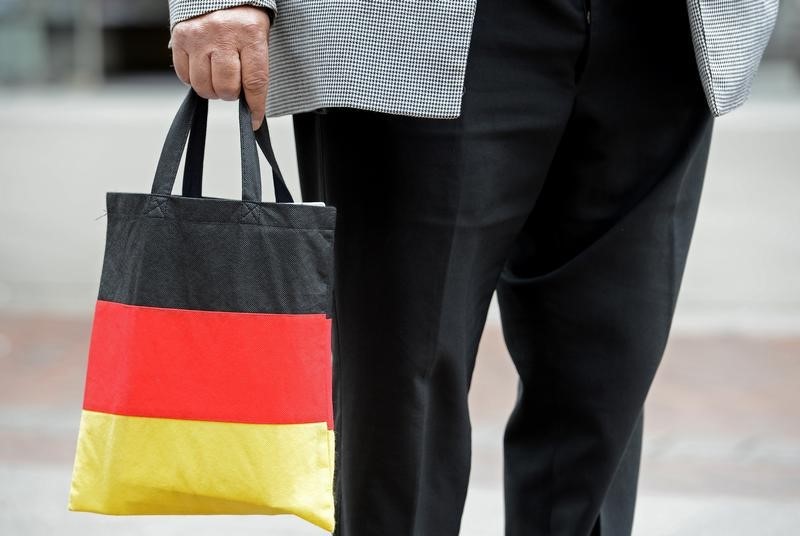BERLIN (Reuters) - Germany's current account surplus is expected to remain the world's largest this year despite an overall drop which is mainly due to higher costs for oil and natural gas imports, the Munich-based Ifo economic institute said on Thursday.
The International Monetary Fund (IMF) and the European Commission have for years urged Berlin to lift domestic demand and imports as a way to reduce global economic imbalances and fuel global growth, including within the euro zone.
U.S. President Donald Trump has also criticised Germany for doing too little to reduce its trade surplus with the United States, accusing Berlin of "very bad" trade policies.
Chancellor Angela Merkel has pushed back, saying Berlin's economic and fiscal policies have already turned private consumption and state spending into the main growth drivers of Europe's biggest economy.
Merkel also pointed out that the German surplus is mainly a result of the interplay of supply and demand on global markets and that Berlin has only limited influence on other important factors such as the euro exchange rate and energy prices.
Ifo said it estimated the German current account surplus -- which measures the flow of goods, services and investments -- to remain the world's largest in 2017 at $285 billion, followed by China with roughly $190 billion and Japan with $170 billion.
"Germany's overall surplus is mainly caused by trade flows," Ifo said in its analysis, adding that stronger demand from other euro zone countries, the rest of the EU and the United States had boosted exports in the first half of the year.
The German current account surplus is expected to shrink to 7.9 percent of total output in 2017 from 8.3 percent in the previous year. "This is mainly due to energy prices," Ifo said. Higher costs for oil and natural gas are pushing up German imports which has a dampening effect on the trade surplus.
Still, Ifo's estimates mean that Berlin would once again breach the European Commission's recommended upper threshold of 6 percent this year.
